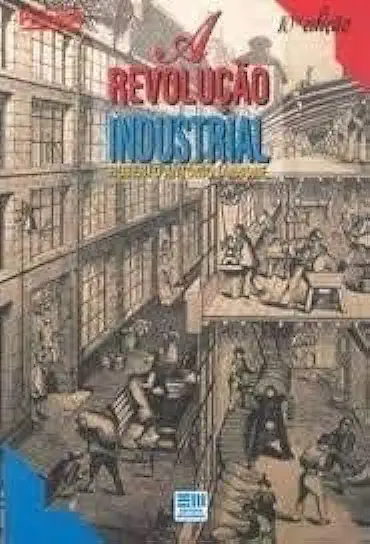
The Industrial Revolution - Roberto Antonio Iannone
The Industrial Revolution: A Transformative Era
A Pivotal Moment in Human History
The Industrial Revolution stands as a watershed moment in human history, marking a profound shift in the way societies produced goods and organized their economies. This transformative era, spanning from the late 18th to the 19th century, witnessed a remarkable surge in technological advancements, reshaping industries, economies, and societies across the globe.
Technological Innovations: The Driving Force
At the heart of the Industrial Revolution lay a series of groundbreaking technological innovations that revolutionized production processes. The invention of the steam engine, spearheaded by James Watt, provided a reliable and efficient source of power, enabling factories to operate on a larger scale. The mechanization of textile production, pioneered by inventors like Richard Arkwright and Samuel Crompton, transformed the textile industry, increasing productivity and reducing costs.
The Rise of Factories: A New Era of Production
The Industrial Revolution ushered in the rise of factories, large-scale production facilities that brought together workers, machinery, and raw materials under one roof. This shift from cottage industries to factory-based production marked a significant departure from traditional methods and paved the way for mass production.
Urbanization and Social Changes
The Industrial Revolution triggered a wave of urbanization as people flocked to cities in search of employment in factories. This rapid influx of population led to the expansion of cities, the emergence of slums, and profound changes in social structures. The working class emerged as a distinct social group, facing challenging working conditions and advocating for better rights and待遇.
Economic Impact: Growth and Inequality
The Industrial Revolution brought about unprecedented economic growth, leading to a surge in wealth and productivity. However, this growth was not evenly distributed, resulting in stark inequalities between the wealthy industrialists and the working class. The gap between the rich and the poor widened, sparking social tensions and labor movements.
Global Impact: A Ripple Effect
The Industrial Revolution's impact extended far beyond its birthplace in Europe. Its influence spread across the globe, transforming economies and societies in countries like the United States, Japan, and India. The spread of industrialization led to increased global trade, cultural exchange, and the rise of new economic powers.
Environmental Consequences: A Cautionary Tale
While the Industrial Revolution brought about remarkable progress, it also left a lasting impact on the environment. The increased use of coal and other fossil fuels led to air pollution, deforestation, and environmental degradation. These consequences serve as a cautionary tale, underscoring the need for sustainable practices in modern industrial societies.
A Legacy of Innovation and Progress
The Industrial Revolution stands as a testament to human ingenuity and the transformative power of technological advancements. Its legacy continues to shape our world, influencing industries, economies, and societies to this day. By delving into the history of this pivotal era, we gain valuable insights into the origins of our modern world and the challenges and opportunities that lie ahead.
Conclusion: A Must-Read for History Enthusiasts
"The Industrial Revolution" by Roberto Antonio Iannone is a comprehensive and engaging account of this transformative era. Through meticulous research and vivid storytelling, Iannone brings to life the key players, technological innovations, and social changes that defined this period. This book is a must-read for history enthusiasts, economists, and anyone seeking a deeper understanding of the foundations of our modern world.
Enjoyed the summary? Discover all the details and take your reading to the next level — [click here to view the book on Amazon!]